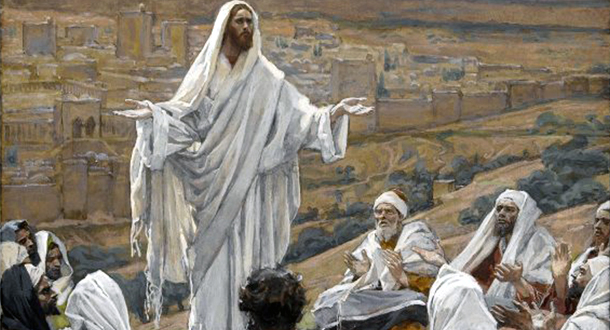 Scripture:
Scripture:
Reflection:
For several days now, selections from the Letter to the Hebrews have appeared in our daily readings. Relatively little is known about the precise circumstances surrounding this New Testament book. Although attributed to Paul in earlier times, its very different style from the other Pauline letters has led scholars even in antiquity to question whether Paul actually wrote it. We also don’t know for sure where it originated or to precisely to whom it was sent, although a reference to “those from Italy send you greetings” at the end of the letter (13:24) suggests that it may have been written to Christians in Rome, perhaps from Alexandria.
What we do know from the letter itself is that it was meant to encourage Christians who were in distress. The segment we hear today makes that clear. The author notes that some have “endured a great contest of suffering,” “exposed to abuse and affliction.” Others may not have been directly attacked or imprisoned but by associating with their fellow Christians who were in prison, they, too, suffered “confiscation of your property” and other types of suffering.
Earlier in the letter, the author notes that the burden of such sufferings had led some Christians to lose their early fervor and to avoid coming to the community’s gatherings for prayer.
The author of the letter urges his fellow Christians, “do not throw away your confidence” but to persevere. Don’t, he urges, be “among those who draw back and perish, but among those who have faith and will possess life.”
Hebrews builds this type of encouragement on its portrayal of Jesus that runs through the first part of the Letter. He describes Jesus as the great “high priest” who is the mediator between God and humankind, as one who himself had enduring suffering. In a sweeping image, he portrays Jesus as entering into an ideal, heavenly temple and reaching the throne of God; through his death and resurrection, Jesus the high priest defeats death and intercedes for all who believe in him. Like Jesus himself, we are promised to ultimately be united in love with God. In this same vein, Hebrews uses images for Jesus not found anywhere else in the New Testament. Jesus is the “pioneer” and “captain” of our salvation; the “stalking horse”—literally the one who runs through first—who leads us through the trial of death to ultimate life. Jesus is like the runner of a marathon who after enduring a long and exhausting race enters the stadium in triumph.
There are times, we all know, when we are called to perseverance in the midst of suffering. The loss of a loved one; concern about a son or daughter in trouble; worries about the pressures of our job. The same can be true about our concerns for the church itself these days: the wounds caused by the sexual abuse crisis; the lack of involvement of so many young adults.
The Letter to the Hebrews is written for us. We are asked to take the long view. To trust in God’s overwhelming love for us. To remember that Jesus has walked the path of suffering and loss before us—and will not abandon us.
Fr. Donald Senior, C.P. is President Emeritus and Professor of New Testament at Catholic Theological Union. He lives at the Passionist residence in the Hyde Park neighborhood of Chicago.
